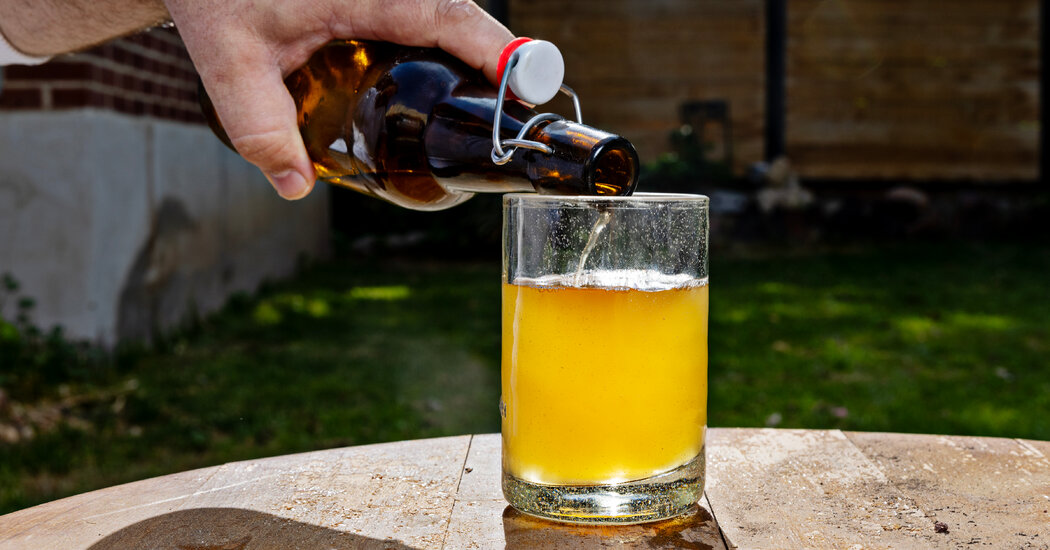An amateur brewer in Utah gathered rare figs and a strain of yeast from 850 B.C. to make a sour, fruity concoction inspired by ancient Egyptian recipes.
The idea came to Dylan McDonnell early in the pandemic, when a sourdough-baking craze took over a nation under lockdown. Mr. McDonnell, an amateur brewer who lives outside Salt Lake City, saw Seamus Blackley, a video game designer, boasting on social media about baking bread with 4,500-year-old Egyptian yeast.
I wonder if I could do that with beer, Mr. McDonnell recalled thinking.
The answer recently arrived in the form of an amber brew that Mr. McDonnell believes is the closest approximation yet to what Rameses the Great may have been drinking between battles with the Hittites.
Recent years have seen attempts to recreate the beer of the Vikings, the Late Shang and Western Zhou dynasties of China, and the Sumerians, who are believed to have invented beer. “These beers can be all over the map,” said Neil Witte, a beer expert at Craft Quality Solutions in Kansas City, Mo. “What was good 500 or 1,000 years ago is likely nothing like what we consider good today.”
Still, the lure of connecting with bygone civilizations by reviving their potent potables appears to be surging.
Mr. McDonnell, who is the chief operations officer of a nonprofit organization that helps people with disabilities, has no desire to compete with professional brewers — or to commercialize his own concoction. But he does believe that he has gone further than others in seeking out the exact ingredients the ancient Egyptians would have used — and fermenting them with ancient yeast.
While wine is often associated with the Greco-Roman civilization, “beer was integral to ancient societies in the Levant and the ancient Near East,” said Marie Hopwood, a scholar of ancient beer at Vancouver Island University, where she is the head of the anthropology department. “Everyone drank beer,” she said, especially since water was often contaminated.
